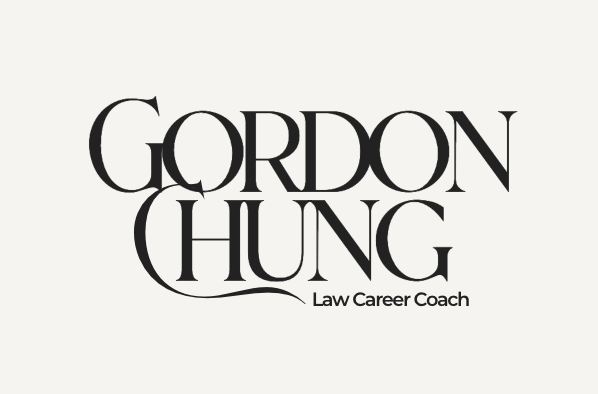From Camera-Shy to Offer-Ready: 6 Counterintuitive Tricks That Helped Me Nail Law Firm Video Interviews
As I know, more and more aspiring lawyers start getting invites for a pre-recorded video interview. In this newsletter, I will completely change your perspective on how you should prepare for such interview, providing you the techniques and tricks to tick some of the key boxes Graduate Recruitment is looking for.
I know most aspiring lawyers find it daunting to sit in front of a camera talking to nobody. But sadly, many BigLaw firms in the UK require their VS/TC applicants to complete a pre-recorded video interview before progressing them to the assessment centre stage. Based on experience, a lot of candidates (especially the most well-prepared and technically strong ones) fail at this stage.
Back then when I applied to London law firms, I tried to search online to see whether there are any tips to nail a video interview. Unfortunately, the pieces of advice I got were things like 'you need to remain calm during the interview...'
Like many of you, I used to hate pre-recorded video interviews as well: I'm fine with speaking to people in real life, but I just feel so uncomfortable speaking in front of a camera under time pressure! Worse still, the questions asked in my video interviews were often not what I had expected too. Sometimes I elaborated too much and ended up running out of time. Yet, after completing 5+ pre-recorded video interviews for different city law firms myself and coaching many other aspiring lawyers, I figured out six useful techniques that helped me nail the video interview and eventually land a training contract offer in London.
1. The 70/30 Rule: Why 'Delivery' Trumps 'Content' in Video Interviews
Do you know that in pre-recorded video interviews, your delivery matters twice as much as your content — here’s how to nail the 70/30 rule and ace your answers.
The key is this - when it comes to pre-recorded video interviews, you need to focus more on the structure of your answers rather than their actual content or substance. I know this may sound a bit counterintuitive at first, but I want to remind you of the following two key facts:
Because of the nature of pre-recorded video interviews, you typically only have 1 to 1.5 minutes to answer each question – the interviewer does not actually expect you to give the most detailed, convincing arguments for your answer, or to impress them with the quality of your answer. They also understand it's impossible for you to figure out the 'best response' on the spot (if you do, its probably a rehearsed answer anyway and you'll likely come across as unnatural or robotic)
Nowadays, the pre-recorded interview questions are also getting harder and harder (e.g. 'What do you think are the key considerations when pitching our law firm to clients?', 'What superpower do you want to have and why?'). Since almost half of the questions that will appear in your video interview are going to be unexpected, the interviewer will not anticipate you to give the best model answer for every single question. Instead, what they're actually looking for is the way you deliver your answer (that being said, if you're able to give a well-thought-out answer and your content is great too, that will be a bonus!)
Are you trying to cover too many points in 1.5 minutes? Are you able to finish your answer on time? Are you rushing? Is your answer well structured? Do you tend to give rehearsed answers at video interviews? Remember, an interviewer can smell scripted answers a mile off, because these answers often come across as robotic — these are some of the key questions you should consider when preparing for your pre-recorded video interviews.
2. 'First, Second, Third': The Magic Formula for Structured, Convincing Answers
Do you want to instantly make your answers sound more convincing? Using simple signposts like ‘firstly,’ ‘secondly,’ and ‘thirdly’ tricks the brain into perceiving your response as structured and persuasive — here’s why it works.
My second tip is closely related to my first point on delivery – whenever you provide an answer at pre-recorded interviews, you should make good use of signposts (e.g. 'first reason', 'second reason', 'third reason', 'in conclusion', 'therefore') to structure your answer, given that clear, well-structured arguments are psychologically perceived as more competent and confident.
The effectiveness of signposting cues is evident from research in conversational analysis and applied linguistics early in the 1980s, illustrating how signposting (e.g. transition words, cues, and organisational markers) can enhance the perceived clarity and persuasiveness of your arguments. Similarly, studies published in the Communication Studies also found that speakers who used signposts were rated as more confident and convincing than those who did not, thereby contributing to the audience's perceptions of authority and confidence.
Therefore, it's advisable for VS/TC applicants to use signposts to at least 'trick' the interviewers into thinking you just gave a clear, well-structured answer, an ability that most interviewers are looking for at pre-recorded video interviews.
3. Crack Any Video Interview: Master These 3 Essential Question Types
While you can’t predict every single video interview question, mastering these three key types — competency, scenario-based and firm-specific questions — will give you the confidence to tackle any curveball with structured, compelling answers.
My third tip is you need to practice the three typical video interview questions in advance. As I said earlier, while half of the questions that may appear at a pre-recorded video interview are likely unexpected, you should still take some time to prepare for the following types:
The first type is the competency based question — in most pre-recorded video interviews, you'll probably encounter one or two competency-based question(s) pertaining to your teamwork and time management skills, or whether you can resolve a conflict within a team etc. It's super important to prepare for those questions, because if you haven't prepared for an example in advance, it's going to be hard for you to think of one on the spot (and within 30 seconds, too). Take a look at the firm's website and check out the qualities they're looking for in their future trainees — the question will likely ask for an example relating to one of those key qualities.
The second type of question is the scenario-based question — you'll likely encounter one or two scenario-based question(s) evaluating how you may respond to a typical scenario that trainee solicitors may face in their day-to-day work. Although it's going to be difficult to predict the exact scenario they may ask you, you can at least try to prepare for the most typical scenarios relating to time-management skills or ethical dilemmas, etc. For example, they may ask you to explain your response in a situation where 'you're working on multiple urgent tasks but an equity partner suddenly asks you to do something else for another client which is important, how will you deal with a situation like this?' You can also try to practice some online Situational Judgement Tests (SJTs) if you're unfamiliar with what your 'best response' should be in each of these tricky scenarios.
The third type of question is question relating to the firm itself, and you can definitely prepare for this type of question in advance. For instance, they may ask you 'why do you want to join our firm', 'who are the firms' competitors' etc. These are just your typical application/interview questions, so you should definitely have an idea of how to answer them.
That being said, despite those three typical questions I outlined above, you'll need to have an expectation that the actual questions that may appear in your pre-recorded vide interviews will not be the same as those you prepared in advance (and that's fine). Ultimately, as we've established earlier, substance is not the most important thing and you'll just need to always remind yourself to have an easy-to-follow structure when answering any video interview questions.
4. Avoid the Last-Second Rush: How a Strong Closing Elevates Your Interview
A smooth finish speaks louder than a rushed answer — leaving just 5-10 seconds to end your answer strongly not only makes you look composed and professional, but also saves you from the panic of an abrupt cutoff.
Being able to finish your answer on time is probably one of the most important things in pre-recorded video interviews. The reason is that in the interviewers’ eyes, the fact that you run out of time often implies two things:
First, when you run out of time, it often means that you either have too many things you want to say (i.e. you've over-prepared and wanted to follow your exact script), or your answer lacks organisation and structure (i.e. you've not thought about how long it takes to finish each point) — they both indicate that you have very poor time management
Second, when you know that you will soon run out of time, you probably tend to speak faster and faster towards the end of your answer, thereby giving an impression to the interviewers that you're getting nervous (which is often not something you want to let the interviewers know...)
Therefore, my advice here for you would be leaving at least a few seconds at the end of each interview question, rather than trying to overdeliver and ending up not being able to finish your answer on time. Say if you leave 5-10 seconds at the end of your answer, you can simply say things like 'thank you for your time' or 'I appreciate you asking me this question' and then smile just before the time runs out, or you can simply summarise the arguments/points you already mentioned in a concise way. You'll come across as a more organised, articulate and confident person that way. You will also avoid having to speak too fast given that you know you will have enough time to finish your answer.
5. Build a Winning Question Bank: Your Shortcut to Confident Answers
A smart question bank is your secret weapon — even getting just 1-2 questions right means you’ll answer with confidence (and a glance at your notes keeps you sharp without sounding scripted).
This point is rather self-explanatory: when you prepare for your pre-recorded video interviews, you should also prepare a set of brief notes outlining your predicted questions and answers — basically, a concise question bank. Although it's highly unlikely that you’ll get all 4-5 video interview questions right, you may get 1-2 question(s) right and then that will immediately boost your confidence!
Although I really don't recommend applicants to memorise their entire answer (as you will likely come across as robotic), it’ll be helpful for you to look at your notes during that 30 seconds of preparation time — you can immediately refresh your memory and know roughly what you're going to say next.
6. Sharpen Your Delivery with Simulated Practice
Do you want to ace your video interviews? Test-drive your answers first — using simulators or self-recording yourself helps you polish delivery and crush nerves before the real deal.
My final tip for a pre-recorded video interview is you should practice it as many times as possible, either by using video interview simulators available online or the practice questions provided by the law firm at the beginning of your interview, or by self-recording yourself.
When you research online, you'll be able to find many relevant resources – for example, providers like The Corporate Law Academy (“TCLA”) offer video simulators. There are also other free resources you can use to prepare for your pre-recorded video interviews, although the quality of such simulators varies from provider to provider. But it's always good to get a feeling of what it’s like to answer a question in front of a camera only. In fact, I also ask all the aspiring lawyers in my BigLaw Academy programme to send me their self-recorded videos, and I will give detailed feedback on their delivery and approach. Practice does make perfect.
In addition, some law firms will give you a chance to practice your delivery by presenting to you a practice question right before you start the video interview. I advise you to practice that for as many times as possible just to gain a bit of confidence before attempting the real questions.
Conclusion
Pre-recorded video interviews don’t have to be a stumbling block to your goal — they can be your strength. By mastering the 70/30 rule (delivery over content), structuring answers with clear signposts, and preparing for the three key question types, you’ll stand out as confident and polished. Finishing strong, building a smart question bank, and practicing with simulators or by self-recording will ensure you avoid common pitfalls and present your best self—even when speaking to a camera.
I used to dread video interviews too, but these 6 strategies transformed them from my weakest point into my strength — and landed me a training contract offer. Now, it’s your turn. Apply these fixes, refine your approach, and turn that daunting video interview into your ticket to the assessment centre.
Ready to ace yours? Start practicing today! 🚀
As a reminder, my flagship "1:1 BigLaw Academy" programme is a one-to-one coaching programme meticulously designed to help you land a training contract at international law firms. The course outline is as follows:
1. Build an International & Diverse Profile from Day 1
✅ Learn how to build an international and diverse CV that appeals to recruiters.
✅ Learn how to craft your unique story and fill in the gaps in your CV.
✅ Discover 3 unorthodox ways to get diverse experiences without connections.
✅ Learn how to best sell yourself in written applications.
2. How to Punch Above Your GPA & Discover Your USPs
✅ Learn how to level up your CV + sell yourself in written applications and interviews.
✅ Discover extra-curricular activities and unlock achievements to create your USPs.
✅ Learn how to turn your achievements into ”a wow factor” that impresses recruiters.
✅ Discover note-taking and exam techniques I used to become the top 5% (in e.g. New York Bar, law school exams).
3. Build Your Personalised Application Strategy
✅ Master both “internal” and “external” commercial awareness + understand the USPs of law firms.
✅ Learn how to effectively tailor your applications and research law firms.
✅ Learn which international firms you should target + which firms to avoid to maximise your chance of success.
✅ Learn the application strategies for both Direct TC and VS applications.
4. My Four Steps Approach to Cover Letter Writing
✅ Avoid the biggest mistake in preparing your cover letter.
✅ Learn the 4-step approach to writing a killer cover letter.
✅ See examples of high-quality cover letters + learn how to show “linkage” between you and the firm.
✅ Learn the skill matching technique to effectively identify your USPs.
5. How to Prepare Multiple High-quality Applications
✅ Learn how to stand out from the crowd.
✅ Navigate each section of an application form.
✅ Discover the best answering techniques to 5 key types of application questions.
✅ Help you get past the written application stage.
6. How to Write an Impressive CV & Pass the First Stages of Assessment
✅ Learn how to craft an impressive CV that grabs recruiters' attention, including timeless tips and best practices.
✅ Navigate online tests and pre-recorded video interviews like a pro.
✅ Learn the most effective techniques and speaking delivery for video interviews + cheatsheets.
✅ Review your video interview footage and train your presentation skills like a mooter.
7. How To Stand Out in Assessment Centres
✅ Navigate case studies, written and group exercises like a pro.
✅ Understand the best analytical frameworks for case study and written exercises.
✅ Learn the top 8 techniques for group exercises.
✅ See examples of mock case studies + how to impress the interviewers.
8. Nail Your Final Interviews
✅ Learn how to build good rapport and leave a lasting impression on partners.
✅ Learn the best approach to nailing the motivational, commercial and competency-based questions etc.
✅ Master the answering strategies and techniques for 20+ most pressing interview questions.
✅ Conduct a 1:1 Mock Interview with you to help you crush Partner Interviews.









